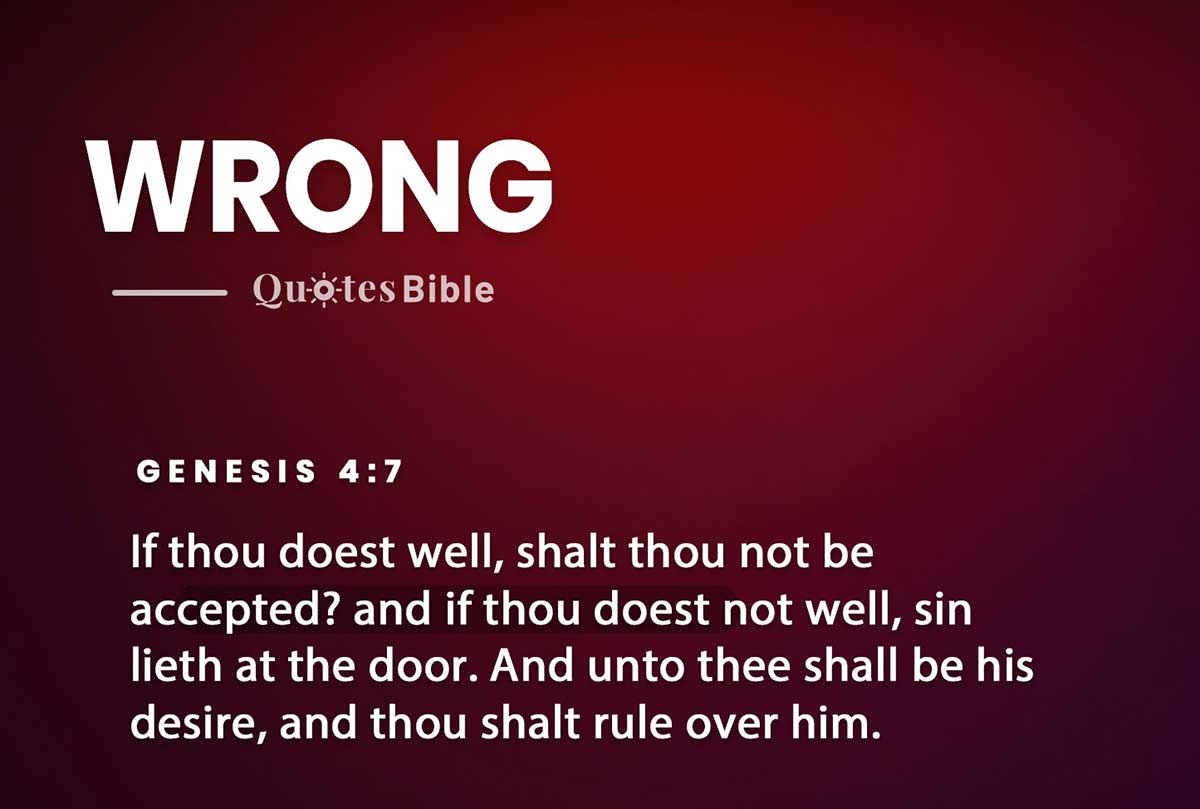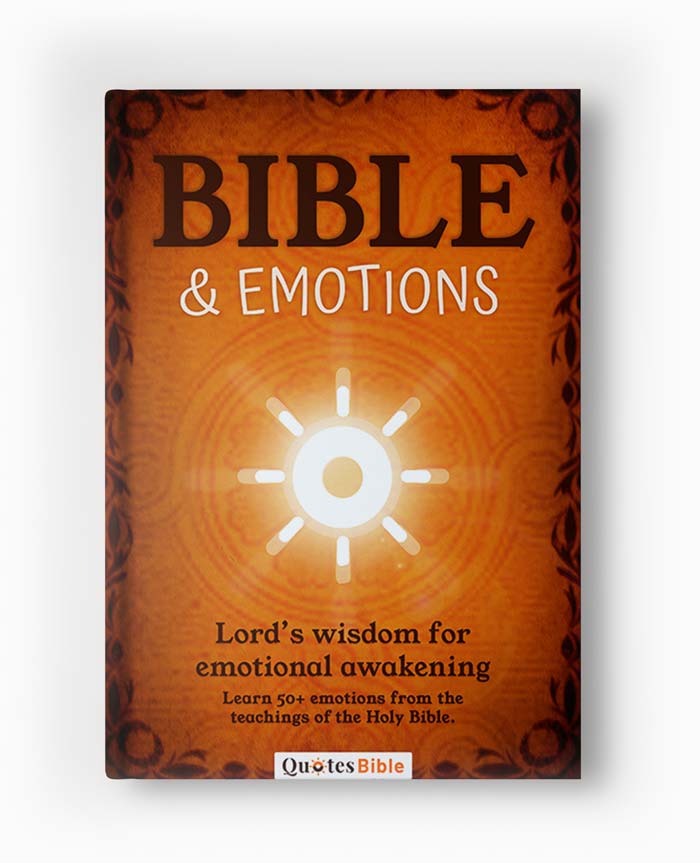Introduction
Welcome to a thought-provoking exploration of “Wrong Verses from the Bible.” In this post, we’ll delve into common misconceptions and misinterpretations that have emerged over time. Whether due to translation errors or cultural shifts, some verses are often misunderstood or taken out of context. Join us as we clarify these passages, aiming to foster a deeper, more accurate understanding of biblical teachings. Let’s embark on this enlightening journey together!
Those are the best Bible scriptures about Wrong. They will help you to better understand mistakes, errors, incorrect, false, misleading, inaccurate, flawed, misunderstood…
What Wrong means?
Wrong refers to something that is incorrect, inaccurate, or not appropriate according to moral, legal, or social standards.
💥 [ILLUSTRATED BIBLE] – The Action Bible: God’s Redemptive Story 🎨
Wrong: An Important Concept of the Bible?

In the Bible, wrong plays a crucial role in guiding moral and ethical behavior. It highlights the distinction between right and wrong actions, emphasizing the importance of obeying God’s commandments. By illustrating the consequences of wrongdoing, the Bible teaches lessons on accountability, repentance, and redemption. Stories of individuals making mistakes serve as reminders of human fallibility and the need for divine grace. Ultimately, the theme of wrong encourages believers to strive for righteousness, fostering a deeper relationship with God and promoting a just and compassionate society.
Wrong: The Best Bible Verses
1. For all have sinned, and come short of the glory of God; — [Romans 3:23]
2. All scripture is given by inspiration of God, and is profitable for doctrine, for reproof, for correction, for instruction in righteousness: — [2 Timothy 3:16]
3. Wherefore, my beloved brethren, let every man be swift to hear, slow to speak, slow to wrath: — [James 1:19]
4. Woe unto them that call evil good, and good evil; that put darkness for light, and light for darkness; that put bitter for sweet, and sweet for bitter! — [Isaiah 5:20]
5. Therefore to him that knoweth to do good, and doeth it not, to him it is sin. — [James 4:17]
6. Thou hypocrite, first cast out the beam out of thine own eye; and then shalt thou see clearly to cast out the mote out of thy brother’s eye. — [Matthew 7:5]
7. There is a way which seemeth right unto a man, but the end thereof are the ways of death. — [Proverbs 14:12]
8. Let all bitterness, and wrath, and anger, and clamour, and evil speaking, be put away from you, with all malice: — [Ephesians 4:31]
9. Be not wise in thine own eyes: fear the LORD, and depart from evil. — [Proverbs 3:7]
10. Therefore thou art inexcusable, O man, whosoever thou art that judgest: for wherein thou judgest another, thou condemnest thyself; for thou that judgest doest the same things. — [Romans 2:1]
11. Brethren, if a man be overtaken in a fault, ye which are spiritual, restore such an one in the spirit of meekness; considering thyself, lest thou also be tempted. — [Galatians 6:1]
12. When pride cometh, then cometh shame: but with the lowly is wisdom. — [Proverbs 11:2]
13. And why beholdest thou the mote that is in thy brother’s eye, but considerest not the beam that is in thine own eye? — [Matthew 7:3]
14. Not rendering evil for evil, or railing for railing: but contrariwise blessing; knowing that ye are thereunto called, that ye should inherit a blessing. — [1 Peter 3:9]
15. Every way of a man is right in his own eyes: but the LORD pondereth the hearts. — [Proverbs 21:2]
16. The way of a fool is right in his own eyes: but he that hearkeneth unto counsel is wise. — [Proverbs 12:15]
17. Recompense to no man evil for evil. Provide things honest in the sight of all men. — [Romans 12:17]
18. But now ye also put off all these; anger, wrath, malice, blasphemy, filthy communication out of your mouth. — [Colossians 3:8]
19. If we say that we have no sin, we deceive ourselves, and the truth is not in us. — [1 John 1:8]
20. But your iniquities have separated between you and your God, and your sins have hid his face from you, that he will not hear. — [Isaiah 59:2]
21. See that none render evil for evil unto any man; but ever follow that which is good, both among yourselves, and to all men. — [1 Thessalonians 5:15]
22. Let us not therefore judge one another any more: but judge this rather, that no man put a stumblingblock or an occasion to fall in his brother’s way. — [Romans 14:13]
23. He that trusteth in his own heart is a fool: but whoso walketh wisely, he shall be delivered. — [Proverbs 28:26]
24. He is in the way of life that keepeth instruction: but he that refuseth reproof erreth. — [Proverbs 10:17]
25. For there is not a just man upon earth, that doeth good, and sinneth not. — [Ecclesiastes 7:20]
26. There is a way that seemeth right unto a man, but the end thereof are the ways of death. — [Proverbs 16:25]
27. The foolishness of man perverteth his way: and his heart fretteth against the LORD. — [Proverbs 19:3]
28. All unrighteousness is sin: and there is a sin not unto death. — [1 John 5:17]
29. He that refuseth instruction despiseth his own soul: but he that heareth reproof getteth understanding. — [Proverbs 15:32]
30. Now therefore there is utterly a fault among you, because ye go to law one with another. Why do ye not rather take wrong? why do ye not rather suffer yourselves to be defrauded? — [1 Corinthians 6:7]
Conclusion
We hope you enjoyed those Wrong verses.
Misunderstandings of Bible verses often arise from context loss or translation nuances. By exploring historical and cultural backgrounds, readers can gain clearer insights. Embracing a deeper study enriches faith and fosters informed discussions, bridging gaps between ancient texts and modern interpretations.
